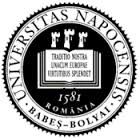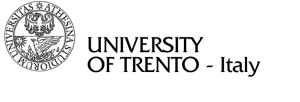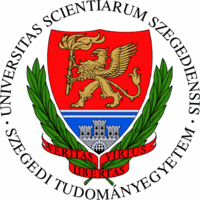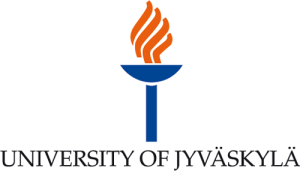We have added 3 new sections to the website where you will find all the SPEAQ resources in French, German and Spanish. You will also find out more about LanQua and the Quality Model in the 3 languages.
End of the SPEAQ project
Dr Anca Greere and Dr Kate Riley presenting the SPEAQ project at the 8th European Quality Assurance Forum
8th European Quality Assurance Forum
Working together to take quality forward
Hosted by the University of Gothenburg, Sweden
21-23 November 2013
Dr Anca Greere and Dr Kate Riley’s paper was accepted and will be presented at the 8th European Quality Assurance Forum at the University of Gothenburg. Here si the abstract of their paper:
‘Engagement, Empowerment, Ownership – How to nurture the Quality culture in higher education’.
Drawing on collaboration amongst higher education institutions in nine different European countries, this paper describes mechanisms which, over the two years of the SPEAQ project, have proved effective in developing a quality-driven mentality in three stakeholder categories: students, teaching staff and quality managers.
In spite of many national/contextual specificities institutions throughout the European Higher Education Area are frequently confronted with comparable quality assurance issues for which similar approaches may be adopted. This paper identifies these commonalities and details the type of actions which can empower stakeholders and enhance the quality of the educational experience.
Securing the engagement of stakeholders in the quality cycle often depends on the amount of trust an institution is willing to place on their contributions and on the way their opinions are elicited, collected, analysed, prioritised and actioned throughout the institution. Facilitating stakeholder ownership of quality processes is shown to be a highly effective strategy.
We will link to the online paper once it is released. In the meantime, you can find out more about the conference at http://www.eua.be/eqaf-gothenburg.aspx
In the loop: getting the most out of feedback
 As part of SPEAQ, the 9 partners in European HEIs are developing initiatives to improve quality practice and culture within HE institutions. The initiative that we have chosen at the University of Southampton addresses feedback issues, which were raised in the first phase of the project by students, academic staff and quality staff. We have been developing online resources, which we will present to University of Southampton staff and students in the autumn through an interactive workshop.
As part of SPEAQ, the 9 partners in European HEIs are developing initiatives to improve quality practice and culture within HE institutions. The initiative that we have chosen at the University of Southampton addresses feedback issues, which were raised in the first phase of the project by students, academic staff and quality staff. We have been developing online resources, which we will present to University of Southampton staff and students in the autumn through an interactive workshop.
We have chosen to approach issues of feedback in practical, clear and meaningful ways, and to achieve this, we will:
• Examine current methods for giving and receiving student feedback at the university (illustrated by case studies of what is already being done successfully by some teachers, quality managers and students);
• Provide activities which encourage reflection on how staff and students can improve the ways in which feedback is delivered, received, and reported;
• Provide clear explanations of quality assurance processes and mechanisms at the University and how these relate to the feedback given and received by student.
We have recently interviewed two dedicated members of staff: Bella Millet, Professor of Medieval Literature, who recently received an award for ‘student feedback’ at the Student Excellence Awards, and Simon Kemp, Principal Teaching Fellow, whose work was recognised through the award of a National Teaching Fellowship in 2010. Simon is also currently the national Academic Lead in Education for Sustainable Development (ESD) at the Higher Education Academy. Bella and Simon both highlighted the need for teachers to know their students in order to give meaningful feedback. Both also emphasised the value in giving verbal feedback to students which gives teachers a chance to explain their comments better and ensure that they are understood by students in the way they were intended. The full interviews will be available online soon.
Moving on and, hopefully, expanding in Cluj, Romania
 With a view to disseminate, and possibly replicate the SPEAQ student mentoring project within the Faculty of Letters, we organized a meeting with a group of first year students from other departments of the faculty, on April 11th, 2013. They belonged to specializations with different numbers of students, ranging from a dozen to more than a hundred, which would enable them to test their organization skills and the feasibility of such a project at micro and macro level.
With a view to disseminate, and possibly replicate the SPEAQ student mentoring project within the Faculty of Letters, we organized a meeting with a group of first year students from other departments of the faculty, on April 11th, 2013. They belonged to specializations with different numbers of students, ranging from a dozen to more than a hundred, which would enable them to test their organization skills and the feasibility of such a project at micro and macro level.
The main topics we tackled were the following:
- an overview of the SPEAQ project, including the SPEAQ blog;
- the presentation of the peer-to-peer mentoring programme within the Applied Modern Languages Department, as piloted during this past academic year;
- a debate concerning their first week at the faculty, as seen in retrospect, focusing on what would have made their life easier if some particular issues had been addressed, in due time, with the help of peer mentors;
- a list of the things they wished they had known before and during the winter exam period, with a view to adapting the information provided by the student mentors to the different stages of the university year.
As the discussion unfolded, they were asked to fill in their requests in an imaginary first-week-timetable. This brainstorming session revealed an ideal “getting acquainted with the faculty” timetable, one of whose versions could look as follows:
| Monday | A crash course in topography, so that the faculty should be less of a “terra incognita” |
| Tuesday | Reading the timetable – why are the weeks called “odd” and “even”? |
| Wednesday | Where do I belong? Are practical course groups formed according to some alphabetical order criterion? |
| Thursday | How do I join and access the faculty libraries? |
| Friday | What are the credits and the contracts? How do I apply for a scholarship? |
The clearest signs that these students found the initiative useful and are eager to put into practice a peer-to-peer mentoring programme in their respective departments were the detailed questions they asked regarding the impediments we had faced and the fact that they shared the idea with their own teachers the very next day. We would be happy to witness an “upgraded” version of our initiative following next autumn.
Iulia Bobaila,
Assistant Lecturer, Babeş-Bolyai University
Short video introducing the SPEAQ project
University of Trento, Italy – An aMEISing story!
 It was a slow start to the year at Trento, mainly due to bureaucratic hiccoughs: the institution of the Student-Teacher Committee, central to one strand of the mini-project at the School of International Studies (SIS) was delayed until February. Nonetheless, to kick-start the project, some informal meetings were held with the student members of the committee, all students on the Master’s in European and International Studies (MEIS). These students have taken their role to heart and had held meetings with all the students enrolled at the SIS to discuss quality issues. This enthusiasm met its reward first in early March with a formal meeting with the Degree Director, and subsequently on seeing some of their feedback and suggestions included in the first ever report to the newly created Italian QA Agency, submitted in March. The Committee finally met for the first time on April 29th.
It was a slow start to the year at Trento, mainly due to bureaucratic hiccoughs: the institution of the Student-Teacher Committee, central to one strand of the mini-project at the School of International Studies (SIS) was delayed until February. Nonetheless, to kick-start the project, some informal meetings were held with the student members of the committee, all students on the Master’s in European and International Studies (MEIS). These students have taken their role to heart and had held meetings with all the students enrolled at the SIS to discuss quality issues. This enthusiasm met its reward first in early March with a formal meeting with the Degree Director, and subsequently on seeing some of their feedback and suggestions included in the first ever report to the newly created Italian QA Agency, submitted in March. The Committee finally met for the first time on April 29th.
The second strand of the mini-project, focusing more directly on enhancing the experience of international students in the Italian HE context, is also well underway.
Interviews in February with Quality Management and staff of the International Office and the Head of the International Student Welcome Office identified areas of improvement from the administrative point of view.
In mid April a focus group for all international students enrolled at the SIS, EU and non-EU, was well attended and another meeting is fixed for mid May. Some of the issues raised by the students were in part due to a misunderstanding of the Italian HE system by international students or simply due to poor communication or lack of information. Others were of a more technical nature, but the exchange of information at least helped students understand why things are as they are!
A group of highly motivated MEIS students asked if they could run some ‘mini projects’ of their own, mainly regarding enhancing communication. Since Easter they have been working on:
- Creating an Alumni Network
- Improving the information for prospective students on the website
- Creating a FAQ page for prospective students
- Interviewing students, former and current to identify other critical points
- Inviting advice from former students to current students on employment prospects
- Enhancing information about the School and its Programmes intended for the general public and future employers
- Setting up an SIS Student Facebook page
- Drafting a mini-guide to Studying at the SIS and in Italy for international students
- Making a short video for the website
These projects, along with the students’ proposals for the MEIS itself, will be presented to all SIS students and staff at an open debate on 14th May entitled ‘Prepare to be aMEISed’.
At the School of Education in Innsbruck, Austria
 Specific co-operations are planned within areas of Didactics at the School of Education in Innsbruck.
Specific co-operations are planned within areas of Didactics at the School of Education in Innsbruck.
The main focus will be on designing an assessment grid that can be used by all lecturers teaching on the Middle Module of Languages Didactics. The aim is to enhance transparency for students and provide a framework for teaching staff leaving scope for individual course focus. Bringing in the student voice at different stages of discussions is an essential aspect as is the inclusion of perspectives from Quality Management.
Initial discussions with individual students asking whether they might be interested in collaborating and bringing in opinions on assessment have been met with a high level of enthusiasm and also surprise – at being asked.
The Quality Manager involved in SPEAQ has previously worked on similar initiatives within other departments and, in fact, assessment strategies are a central part of his main professional activities. It is noticeable that there is very little general awareness of his rôle.
The second initiative is to start up co-ordination on course development between Languages and Science Didactics in the area of CLIL. Discussions to find a common point of interest and common approaches to learning materials have been opened.
Christine Lechner,
University of Innsbruck
Joint Austrian-Hungarian SPEAQ workshop at the University of Szeged, Hungary
 Klara Szabo from the University of Szeged and Christine Lechner from the University of Innsbruck held a joint Austrian-Hungarian SPEAQ workshop with a group of students and course teachers. The workshop took place from 8.30 to 10.00 on April 17th, 2013 in Classroom 6123 of the Faculty of Education. There was a total of 32 participants in the workshop, 27 students and 5 course teachers. The teachers were members of the Department of Modern Languages and Cultures, the students were 1st year and 2nd year communication students. Four presentations were held, two of these were given by SPEAQ institutional coordinators, Christine Lechner (Innsbruck) and Klára Szabó (Szeged). Two Szeged University students, Eszter Farda and Zsuzsanna Nagy summarized their findings of the mini project interviews. They had been involved in interviewing members of teaching staff and university management at the University of Szeged. The workshop was a successful dissemination event. On the one hand, it provided an opportunity to disseminate the overall project, the findings from Year 1 as the European project landscape to the group.
Klara Szabo from the University of Szeged and Christine Lechner from the University of Innsbruck held a joint Austrian-Hungarian SPEAQ workshop with a group of students and course teachers. The workshop took place from 8.30 to 10.00 on April 17th, 2013 in Classroom 6123 of the Faculty of Education. There was a total of 32 participants in the workshop, 27 students and 5 course teachers. The teachers were members of the Department of Modern Languages and Cultures, the students were 1st year and 2nd year communication students. Four presentations were held, two of these were given by SPEAQ institutional coordinators, Christine Lechner (Innsbruck) and Klára Szabó (Szeged). Two Szeged University students, Eszter Farda and Zsuzsanna Nagy summarized their findings of the mini project interviews. They had been involved in interviewing members of teaching staff and university management at the University of Szeged. The workshop was a successful dissemination event. On the one hand, it provided an opportunity to disseminate the overall project, the findings from Year 1 as the European project landscape to the group.

On the other hand, the event was useful for Klara Szabo to kick-off the Szeged Year 2 project, to enable two groups of students to learn more about quality in general and about the SPEAQ project in particular. It was also useful for Christine Lechner to ask Szeged students how they would view being asked to collaborate on the design of an assessment scale, what they would see as important. The workshop ended with a free exchange of ideas on quality in higher education and on student involvement in quality assessment.
Klára Szabó,
University of Szeged, Hungary
Christine Lechner,
University of Innsbruck, Austria
News from the university of Jyväskylä, Finland

The first three months of the ongoing year have been marked by two main activities related to the SPEAQ project, namely, a self-assessment of our language centre teaching with students, teachers, and quality managers, and the start of the institutional project with reflective practices by teachers and students. The former was done as a preliminary step for the national audit of teaching at HE level to be conducted in January 2015. Strengths, weaknesses, and development areas were identified in the interactive workshop, to be followed by a more detailed strategic development plan for the time before the audit. What was particularly interesting were the comments by students – at first some of them were not quite sure what they might have to contribute to such a task, but in the end commented on how much they had learnt about how our centre operates and pursues the quality of teaching and learning. As some of you might know, our main mission is to cater for the discipline-specific and scientific language and communication skills training to students of non-language disciplines, required for all degrees in the mother tongue, second domestic language, and one-two foreign languages. This requires close co-operation with subject departments, as much of the teaching is integrated with discipline studies.
As regards our institutional project within SPEAQ, then, it is being implemented along our staff development programme in teaching academic content through English (TACE), i.e. a university pedagogical in-service programme for staff involved in English-medium teaching of their disciplines. We offer this training to promote the quality of internationalisation, which is the second main mission of our language centre. Last year’s participants – both international and Finnish members of staff – are in the process of writing their reflective reports on their teaching experiments, using the LANQUA Quality Model as the framework. We are eagerly waiting for these reports, due in early May.
Dr Anne Räsanen
Senior Lecturer in English
University of Jyväskylä Language Centre


